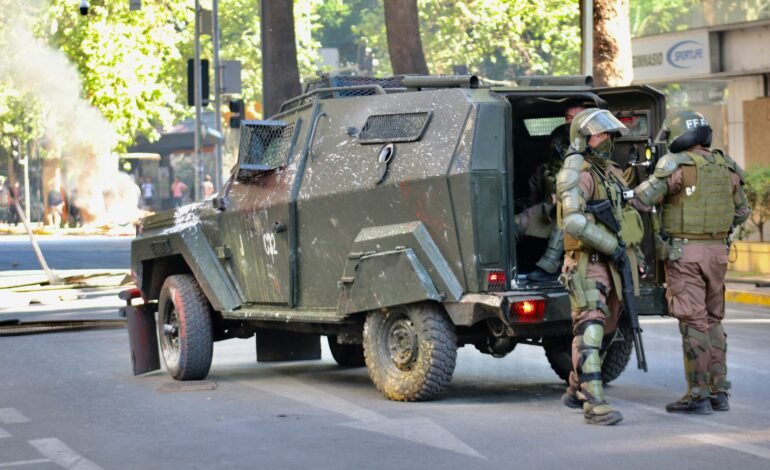Photo of Jorge Fernández Salas in Unsplash
The brutal murder of Irina Zarutska, a 23-year-old Ukrainian refugee, on August 22 on a Charlotte light rail train, has shaken American public opinion and become political ammunition for the White House. President Donald Trump is using the case to reinforce his "law and order" rhetoric and justify the military deployment in Democratic-run cities, which he accuses of being permissive toward crime.
The crime that shocked Charlotte
Zarutska, who had come to the United States three years earlier fleeing the war in Ukraine, was returning home from a shift at a pizzeria when she was attacked by Decarlos Brown, a 34-year-old African-American man with a lengthy criminal record and more than a dozen prior arrests.
The train's security cameras captured Brown calmly opening a folding knife and stabbing the young woman three times, once in the neck. The victim tried to resist, but bled to death minutes later. The cold-blooded nature of the attack and the attacker's history of repeat offenses sparked local outrage, but it wasn't until national media broadcast the video two weeks later that the case reached the White House.
Trump's reaction
On September 7, Trump spoke out on his Truth Social network:
"I've seen the horrific video of a young Ukrainian refugee brutally ambushed in Charlotte. Irina Zarutska's blood is on the hands of Democrats who refuse to lock up bad people."
The president framed the murder within his thesis that "blue" cities need a strong hand, and asserted that "only Republicans can guarantee law and order." He also blamed Democratic policies such as the elimination of cash bail, pushed through after the movement. Black Lives Matter, which he blamed for repeatedly releasing repeat offenders.
Federal charges and political pressure
On September 8, the Justice Department charged Brown with federal murder on public transportation, in addition to the state's first-degree murder charge filed the day after the crime.
Attorney General Pam Bondi backed the president's line, stating that "crime leniency prioritizes criminals over the innocent." Trump went further, explicitly calling for Brown to receive the death penalty, an option Bondi asserted "is on the table."
Cross accusations and national debate
While critics accuse Trump of politicizing the murder to justify the militarization of cities like Washington and Los Angeles, allies and ultraconservative figures claim the case highlights an epidemic of violence ignored by the mainstream media. Elon Musk denounced a "media double standard" when contrasting coverage of George Floyd's murder with that of Zarutska, while Republican Congressman Mark Harris called Charlotte a "microcosm of rampant national crime."
Deputy Chief of Staff Steven Miller and FBI Director Kash Patel said crimes like this justify the recent deployments of the National Guard in Chicago and Los Angeles, as well as future operations to increase immigration arrests in cities that have defied the federal government.
A tragedy turned into a political banner
What began as a heinous crime on Charlotte public transportation has become a symbol in Trump's narrative about insecurity and the "soft touch" of Democratic administrations on crime. The memory of Irina Zarutska, a young woman who came to the United States seeking safety and freedom, has become the center of a heated debate about justice, migration, and the militarization of cities.
For more stories like this, follow More Latin.
Sources:

